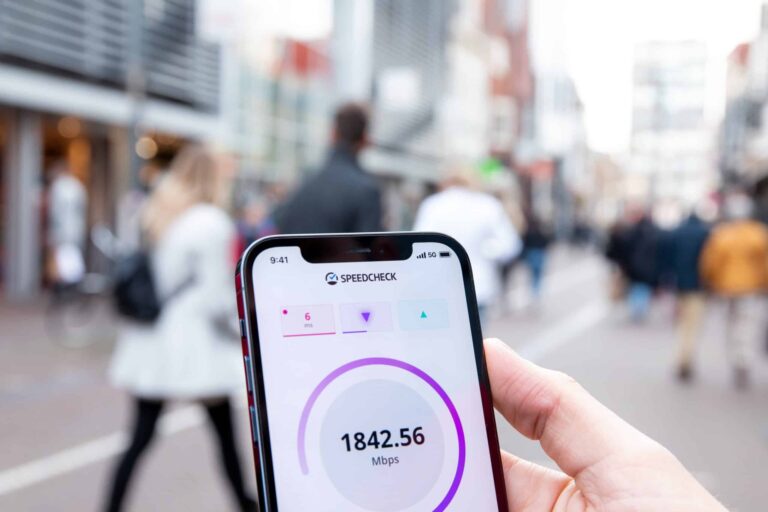The quest for technology modifications and improvement will always be a thing for as long as we live. And that’s why the invention of the 5G network is such good news.
In this article I’ve listed all you need to know about 5G technology. Now, let’s dive in.
Table of Contents
What is 5G technology
5G is the fifth generation of cellular mobile communications. It is a successor to 4G and is designed to provide faster internet speeds, lower latency, and more reliable connections. 5G networks are expected to support a wide range of new devices and applications, such as self-driving cars, virtual and augmented reality, and the Internet of Things.
5G is also designed to improve network capacity and efficiency, making it possible to connect more devices to the internet and support more users in densely populated areas.
However, it’s worth noting that G5 technology is still in the process of being rolled out and may not be available in all areas yet. The deployment of G5 technology is a complex and time-consuming process, as it requires the construction of new infrastructure and the upgrading of existing networks.
Who invented 5G
5G is not invented by one single person or organization, it is the result of research and development by many companies, academic institutions, and standardization bodies over several decades.
The development of 5G technology is led by international telecommunication standardization bodies such as 3GPP (3rd Generation Partnership Project) and ITU-R (International Telecommunication Union – Radiocommunication Sector) along with contributions from various companies like Qualcomm, Ericsson, Nokia, Samsung and Huawei and other research institutions.
What underlying technologies make up 5G
5G networks use a combination of technologies, including:
- OFDM (orthogonal frequency-division multiplexing) for the air interface;
- MIMO (multiple input, multiple output) antenna technology to increase capacity and data rates;
- advanced modulation schemes such as QAM (Quadrature Amplitude Modulation) to increase the amount of data that can be transmitted over the airwaves;
- small cells, such as microcells and picocells, to increase capacity in densely populated areas;
- beamforming to direct radio waves to specific devices, increasing the efficiency of the network;
- network slicing to divide the network into virtual networks to support different types of traffic and services;
- advanced scheduling algorithms to efficiently allocate resources;
- advanced error correction codes to improve reliability and reduce latency;
- virtualization and cloud-based architecture to improve flexibility and scalability;
- automation and self-organizing network (SON) to reduce the need for human intervention and optimize network performance.
What are the differences between the previous generations of mobile networks and 5G?
The main differences between previous generations of mobile networks (such as 2G, 3G, and 4G) and 5G include:
- data rates: 5G networks are designed to offer significantly higher data rates than previous generations. Thus, with peak rates of up to 20 Gbps for high-mobility scenarios (e.g. cars and trains). And up to 1 Gbps for low-mobility scenarios (e.g. pedestrians and stationary users);
- latency: 5G networks aim to reduce latency. This the time it takes for data to travel from one point to another, to less than 1ms. Which is much lower than previous generations and enables new use cases such as remote control of machinery and vehicles, and ultra-responsive online gaming;
- network capacity: 5G networks are designed to handle much more traffic than previous generations. And, to support a much larger number of connected devices;
- spectrum: 5G networks can operate in a wider range of frequency bands than previous generations. This includes high-frequency bands (millimeter wave) that can support high data rates but have limited range, and low-frequency bands that have good range and penetration but lower data rates;
- energy efficiency: 5G networks will be more energy-efficient than previous generations;
- mobility: 5G networks will support high-speed mobility for vehicles and trains. Whereas previous generations were limited to lower speeds;
- new use cases: 5G networks will enable new use cases that were not possible or practical with previous generations. Such as massive IoT (Internet of Things), industrial automation, and ultra-reliable low-latency communications.
When and how will 5G affect the global economy?
5G technology is expected to have a significant impact on the global economy by enabling faster internet speeds, greater connectivity, and new technological advancements.
This will definitely lead to increased productivity, efficiency, and innovation across a wide range of industries, including manufacturing, healthcare, transportation, and more.
Additionally, the deployment of 5G infrastructure will likely create jobs and stimulate economic growth. The full extent of 5G’s impact on the global economy is not yet clear, but we can expect it to be significant. The exact timing of this impact will depend on the rate at which countries adopt and implement it globally.
We are about to experience a revolution
5G is a game-changing technology that promises to revolutionize the way we communicate and access information. With faster speeds, lower latency, and improved capacity, G5 technology will enable new use cases and applications that were not possible with previous generations of cellular networks.
While G5 technology is still in the process of implementation, we can expect it to have a significant impact on various industries. And is likely to change the way we live and work in the future.
Read also: 5G on planes, will it be possible to make phone calls? Here is all the news












